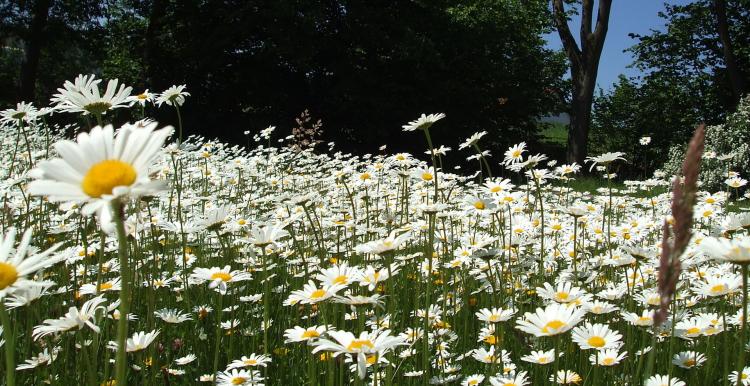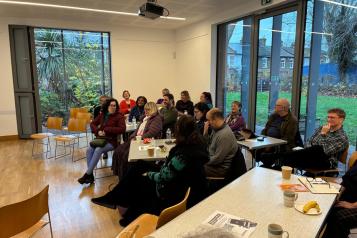Martin's lockdown tip

Hi, my name is Martin and I'm a Time to Change Kingston Champion.
Being with nature is something I have been passionate about since the age of five and which has been personally very beneficial to my mental wellbeing. Hope it will help you too!
Connecting with nature
Several years ago I was informed about 'nature deficit disorder'. It has been demonstrated that if people live in 'concrete jungles' their mental health suffers. This was put into context while doing voluntary work in Richmond Park with visiting school children, including some with visible and invisible disabilities. I saw how much connecting with nature helped their mental wellbeing.
Suggestions for connecting with nature
1. Exercise: walking in green spaces
During the pandemic I am living with my girlfriend with whom I share a passion about being with wildlife. We can sometimes walk over eight miles in an afternoon.
To be active is one of the factors that can help wellbeing according to multidisciplinary research by the New Economics Foundation (Five ways to wellbeing, 2008). In Kingston it is possible to visit Richmond Park, walk by the Thames toward Teddington or visit Canbury Gardens, for instance. Alternatively people can walk next to the Hogsmill river - although social distancing will be more challenging there. Otherwise, people can simply appreciate other people's front gardens and benefit from the exercise.
2. Mindfulness: noticing nature
This is another aspect of the five ways to wellbeing which ties in with connecting with nature and wildlife, sometimes also described as eco-therapy. It is possible to become immersed in listening to bird song, identifying butterflies and listening to sounds of wind in the trees.
Living in the present can be more achievable whilst looking out for squirrels, rabbits, deer and kestrel. Again people who can't travel far can enjoy what they can see from their windows or their gardens.
3. Learning about nature from your home
Caring for the plants, inside and outside my flat is a very absorbing activity that has required a level of applied learning, particularly as many of them are indigenous and self-seeded. Apart from watering them, it has been necessary to learn about pruning, techniques to allow the plants to climb the netting that keeps the pigeons off the walkway and how to fertilise them.
Another aspect of the five ways to wellbeing is to keep learning, so this is also relevant to the research. People's wellbeing can benefit from working in their garden, on an allotment on a window box or even on indoor plants and becoming more aware of wildlife they see from their window.


